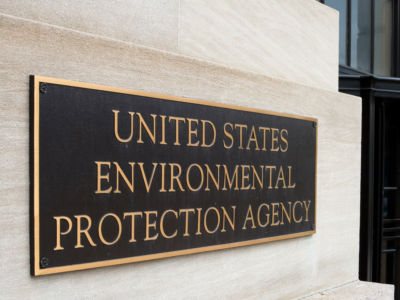Federal Climate Policy
Regulatory Rollbacks: What to Expect
A replay of 2017? Or maybe something more radical? You can probably guess the answer.
Repealing and replacing existing environmental regulations will have a lower priority in this iteration of the Trump presidency – it will often be easier to just ignore the existing regulations or eliminate the regulators rather than the regulations. When it does rollback regulations, the administration will probably take more extreme legal positions and will be more likely to make constitutional arguments against environmental regulation.
CONTINUE READINGUndermining Science in the Name of Ideology
There’s no room in MAGA for free scientific inquiry.
The Trump Administration seemingly views scientific research as a threat. The result has been a wave of censorship and a general effort to undermine the scientific enterprise. This article compiles examples of anti-science actions.
CONTINUE READINGDissecting the Attacks on the Endangerment Finding
EPA has identified four different arguments against the endangerment finding. None have merit.
In late 2009, EPA made a formal finding — often called the Endangerment Finding —that greenhouse gases may endanger human health and welfare. Undaunted by the overwhelming scientific evidence in favor of that finding, the Trump EPA plans to reconsider that finding. Few independent observers believe EPA will succeed, but the issue is important enough to warrant a close look. Here’s a deep dive.
CONTINUE READINGWhat is Life Like Inside Trump’s EPA?
Three EPA employees talk about DOGE, work anxiety, regulatory rollbacks, and the impact on protecting health and the environment.
The new head of the U.S. the Environmental Protection Agency — whose mission is to protect human health and the environment by developing and enforcing regulations — this week made what he proudly called the “largest deregulatory announcement in history” in the form of nearly three dozen policy reversals and “reconsiderations.” EPA Administrator Lee Zeldin’s …
Continue reading “What is Life Like Inside Trump’s EPA?”
CONTINUE READINGEPA Jumps the Shark
Just as a past dictator rejected modern genetics, Trump rejects climate science. For both, evidence was no match for ideology and ego.
Honestly, EPA’s embrace of climate denial is just plain embarrassing. And the rest of the world will justifiably view it as one more sign that the U.S. has taken leave of its senses. Trump can change the name of a water body on maps, but he can’t change scientific reality. The scientific evidence about the reality of climate change, its causes, and its harms is incredibly well-established. It’s based on many different types of data and models, which have been tested and retested.
CONTINUE READINGMake America’s Environment Filthy Again
EPA Administrator Lee Zeldin has launched a full-scale attack on climate, air and water pollution.
In what is one of the most mind-boggling press releases ever to come out of the Environmental Protection Agency, Administrator Lee Zeldin today declared that he wants to make America’s air and water dirty again and to make the planet still warmer. He announced 31 actions that will obliterate protections for cleaner air, cleaner water, …
Continue reading “Make America’s Environment Filthy Again”
CONTINUE READINGThe Legal Complexities of Deregulating Power Plant Carbon Emissions
The Supreme Court struck down Obama’s powerplant regulation. but it didn’t endorse Trump’s first try either.
We are likely to end up with a Trump rule for powerplant emissions that is much weaker than the Biden rule, but not as weak as EPA’s effort in the first Trump Administration. And the process will take Trump longer this time, with a greater litigation risk.This matters because even a very weak rule may require significant investments in improving powerplant efficiency, which could result in some plant closures.
CONTINUE READINGHow to Lie with Percentages
It’s easy to make something seem big or small, depending on how you present the numbers.
We’re told that a given policy will only reduce U.S. emissions by something like 1%, which sounds trivial. But total U.S. carbon emissions are 4.8 billion tons. One percent of that is 48 million tons, which is a lot of carbon. At the current estimate of the social cost of carbon, reducing U.S. emissions by 1% would prevent $9 billion of harm.
CONTINUE READINGTracking the Trump Administration
Rollbacks of Climate, Energy, and Environmental Policies and Investments
The first month of the Trump Administration has resulted in a dizzying flurry of actions and reactions. Many of us are wondering how to track the status of these actions, including the legal challenges to these actions. Luckily, a number of institutions are keeping track of the range of policy and legal actions that are …
Continue reading “Tracking the Trump Administration”
CONTINUE READINGTrump Shoves Economic Analysis and Science to the Curb
The MAGA agenda takes precedence over data and analysis.
If you were looking for data-driven regulatory policy, you’re not going to find it in this Administration. On the contrary, Trump has marginalized economic analysis and wants to bulldoze environmental science. Thus, we are likely to get policies that are bad for the environment without being cost-justified, while ignoring policies who environmental benefits outweigh economic costs.
CONTINUE READING












